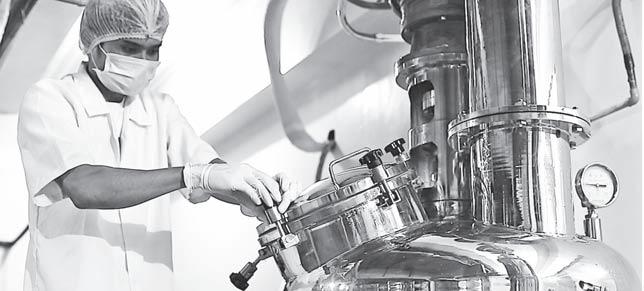
2 minute read
Pres. Marcos Jr. issues EO creating council to recruit, reward scientists in govt service
By Samuel P. Medenilla
PRESIDENT Marcos Jr. issued an executive order (EO) creating a council, which will be tasked in the recruitment, career progression, recognition and reward of scientists in public service.
Under EO 17, which was issued last Monday, the Implementing Rules and Regulations of the Scientific Career System (SCS) as stated in Executive Order 901 (s.1983) was revised.
Among its salient provisions was the creation of the Scientific Career
Council (SCC), which will manage the SCS.
The SCC will be headed by the chairman of the Civil Service Commission and by the secretary of the Department of Science and Technology, both as ex-officio cochairmen.
The council will be tasked to manage the entrance and career progression or advancement based on qualifications, merit and scientific productivity and career path to scientists, as well as incentives and rewards to ensure the attraction and retention of highly qualified personnel in the science and technology sector.

It will also create a Technical Working Group and Special Technical Committees (STCs) to serve as an advisory body and screening committee.
STCs will be created for different fields of specialization and will have at least five members recognized by authorities in their respective fields and who will serve for two years.
Scientists who will be appointed through the SCS will be ranked from Scientist 1 to Scientist V and will get
Program, we can be part of R&D milestones such as creating the first team of Filipino NMR spectroscopy experts who all have the capacity to discover and formulate new drugs. This engagement will also create a big difference in the earning potential of local pharmaceutical and biotechnology companies,” Buendia added.
Lopez, who took his doctorate degree in Hokkaido University in Japan, has extensive experience in natural products chemistry and NMR Spectroscopy.
By using advanced NMR techniques, he led the discovery of new cytotoxic cyanobacteria termed as wewakazole B and new fatty acids amides, columbamides, which are the fundamental blueprint or structures for several medicinal drugs.
In this engagement with USA, Lopez developed an NMR training module with both theoretical and practical aspects of the NMR spectroscopy.
He served as trainer on theory and practical skills for researchers from the academe and industries, such as USA, Mindanao
State University-Iligan Institute of Technology, Central Mindanao University, University of Southern Mindanao and DOST Regional Office VI.
Widening the skillset among Filipino researchers especially for researchers outside the greater Manila in using the NMR creates significant implications for the development of new antibiotics and other drugs.
The presence of an NMR in the Visayas will hasten the isolation and identification of novel compounds as these addresses logistics requirements of spending cost to ship samples to Manila.
An initiative of the DOST, the Balik Scientist Program is part of the Philippine government’s efforts to build a strong science and technology ecosystem in the country.
The enactment of the Balik Scientist Act in June 2018 paved the way for DOST to grant returning Filipino scientists with competitive benefits, such as daily subsistence allowance, health insurance, and roundtrip airfare.
S&T Media Services a compensation plan comparable to those of the Career Executive Service.
Those who will be recruited from national government agencies, state universities and colleges will be compensated through their respective appropriations.
In the case of scientists recruited by government-owned or controlled corporations, they will be compensated through their respective corporate operating budgets, while for those from local government units, their salaries will be charged against their respective local funds.










